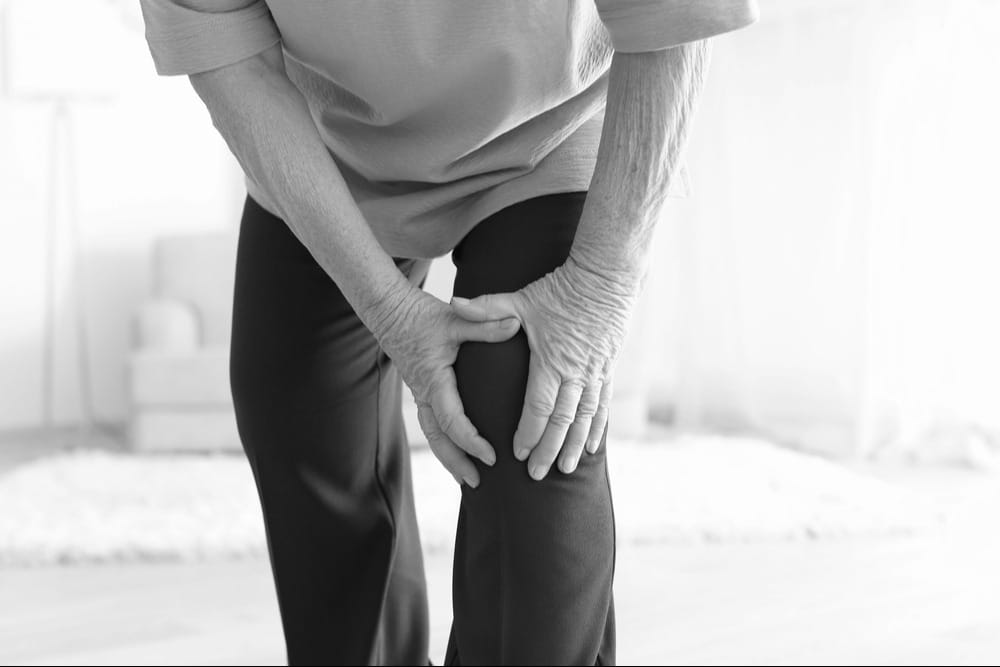If you’re experiencing knee pain and stiffness that interferes with your daily activities, you may be dealing with knee arthritis. This debilitating condition affects millions of people. However, numerous nonsurgical treatments for knee arthritis can provide significant relief without surgery.
Orthopedic Specialists, S.C., understands the impact knee arthritis has on your quality of life and wants to help you explore effective treatment options. Understanding these evidence-based approaches can help you regain mobility and naturally reduce pain.
1. Benefits of Physical Therapy for Pain Relief
Physical therapy stands as one of the most effective nonsurgical treatments for knee arthritis. Your physical therapist will design a customized program that focuses on strengthening muscles around your knee joint, particularly the quadriceps. These exercises help improve joint stability and reduce stress on arthritic knees.
Range-of-motion exercises form another crucial component of physical therapy treatment, helping maintain flexibility in your knee joint and prevent stiffness. Your therapist will also teach you proper movement techniques to protect your joints during daily activities.
2. Weight Loss Supports Joint Health
Weight management plays a critical role in managing knee arthritis symptoms. Every pound of excess weight places approximately four pounds of additional pressure on your knee joints during walking. Losing even small amounts of weight can significantly reduce this stress and slow the condition’s progression.
3. Exercise and Pharmaceutical Drugs for Pain Management and Recovery
Low-impact exercises offer excellent alternatives for managing knee arthritis symptoms as nonsurgical treatments for knee arthritis. Swimming, cycling, and walking on level surfaces provide cardiovascular benefits without placing excessive stress on your joints.
Combining exercise with pharmaceutical interventions creates comprehensive treatment. Additionally, assistive devices like braces and walking aids can enhance mobility during recovery.
4. Injection Treatments for Pain Relief
Corticosteroid injections provide targeted relief directly into your affected knee joint, making it one of the most effective nonsurgical treatments for knee arthritis. These powerful anti-inflammatory medications can reduce swelling and pain for several weeks or months. Your doctor typically limits these injections to three or four times per year to prevent cartilage damage.
Hyaluronic acid injections provide another effective option for managing knee arthritis. This treatment involves injecting a gel-like substance that mimics your natural joint fluid to lubricate your joint and stimulate natural healing.
5. NSAIDs: Effective Pain Relief Options
Nonsteroidal anti-inflammatory drugs (NSAIDs) are first-line pain relief medications for knee arthritis treatment. Over-the-counter options like ibuprofen and naproxen effectively reduce both pain and inflammation. These medications work by blocking the production of inflammatory substances in your body.
Topical NSAIDs provide another excellent option for localized pain relief. You can apply these gels or creams directly to your knee, which may reduce systemic side effects. Your healthcare provider can help determine the most appropriate NSAID option.
6. Acupuncture for Pain and Healing
Acupuncture has shown promising results as a complementary treatment for knee arthritis pain. This ancient practice involves inserting thin needles into specific points on your body to stimulate natural healing responses. Many patients report significant pain reduction and improved function following treatments.
Research suggests that acupuncture may work by triggering natural pain-relieving chemical release in your body. The treatment is generally safe when qualified practitioners perform it. You may need several sessions to experience maximum benefits.
7. Balneotherapy: Can Water Therapy Help?
Balneotherapy involves therapeutic exercises performed in warm water to reduce joint pain and improve mobility. The warm water temperature helps relax your muscles and reduce stiffness in arthritic joints. Water buoyancy supports your body weight, allowing exercise with minimal joint stress.
Many patients find that regular balneotherapy sessions lead to lasting improvements in pain levels and overall function. Water exercise benefits include:
- Less joint stress while allowing full range of motion due to buoyancy.
- Water resistance provides gentle strength training for the surrounding muscles.
- Warm water temperatures help reduce stiffness and improve circulation.
8. Dietary Supplements for Joint Pain
Glucosamine and chondroitin sulfate supplements have gained popularity for supporting joint health in individuals with arthritis. These compounds may help maintain cartilage structure and reduce inflammation in your joints. While research results remain mixed, many patients report improved symptoms with consistent supplementation.
Omega-3 fatty acids offer another supplement option with anti-inflammatory properties. These essential fats may help reduce joint inflammation and support overall joint health. Always consult your healthcare provider before starting any supplement regimen to ensure safety.
9. TENS Therapy for Pain Relief
Transcutaneous electrical nerve stimulation (TENS) therapy uses mild electrical impulses to interrupt pain signals traveling to your brain and ranks among effective nonsurgical treatments for knee arthritis. This non-invasive treatment can provide temporary pain relief without medication side effects. You can use portable TENS units at home for convenient pain management.
The therapy works by stimulating nerve fibers that carry non-painful sensations, effectively blocking pain messages. Many patients find TENS therapy particularly helpful for managing breakthrough pain episodes. Your healthcare provider can teach you proper electrode placement and settings for optimal results.
10. Strength Training for Injury Prevention
Targeted strength training exercises help protect your knee joint by building supportive muscle strength. Strong quadriceps muscles provide better shock absorption and joint stability during daily activities. Your exercise program should focus on both strengthening and flexibility components.
Resistance exercises using bands, light weights, or body weight can effectively build muscle strength:
- Straight leg raises to strengthen the quadriceps muscles
- Wall sits to build overall leg strength
- Step-ups using a low platform for functional strength
Proper form and gradual progression prevent injury while maximizing benefits from strength training.
Explore Non-Operative Treatment Options for Knee Osteoarthritis With Orthopedic Specialists, S.C.
These ten nonsurgical treatments for knee arthritis offer hope for managing your symptoms without surgical intervention. Non-operative treatment options for knee osteoarthritis provide effective alternatives to surgery when properly implemented and monitored by healthcare professionals.
At Orthopedic Specialists, S.C., we specialize in providing comprehensive non-operative care for patients with knee arthritis. Our experienced team works closely with each patient to develop personalized treatment plans that address their needs and goals.
For expert guidance on nonsurgical treatments for knee arthritis, contact Orthopedic Specialists, S.C., at (630) 782-9600 and schedule your consultation in Elmhurst, IL.

